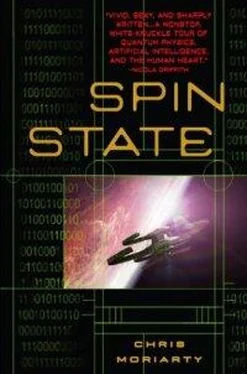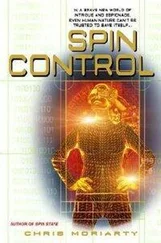A riot of smell and color swept over her. She stood in a long, high-ceilinged hall paved with spiral patterns of marble tesserae. Bright flowers rocketed out of vases painted with rampant lions and romping, grinning dragons. Cabinets lined the walls, their polished glass fronts filled with books, fossils, photographs, playing cards. As she started down the hall, something moved in her peripheral vision. She jumped around—only to realize that one of the painted dragons was tapping its scaled feet and winking at her. She shook her head and snorted. Hyacinthe laughed.
One side of the hall opened onto a high terrace, and when she looked out she could see the stony ramparts of a crusader’s castle digging their feet into the face of a mountainside that dropped away for miles above a long, green windswept valley. She stepped to the balustrade and leaned out over the void. The stone under her hand felt as hot as if it had been warming under the afternoon sun, but when she looked to the sky it seemed to be morning—the fresh, cool morning of a fall day.
The heat was in the stone, she realized, part of the teeming life the place radiated. Was this all Cohen? The castle? The mountain? This whole world, wherever and whatever it was? She leaned out farther, squinting down the dizzying fall of buttress and mountain, trying to see where the active code stopped and the backdrop started. Instinctively, she dropped out of VR and into the numbers.
Her head spun. The world twisted and rippled around her. Numbers came at her too fast for her to feel them as anything but blinding, paralyzing, dizzying pain. This was a system never designed for human interface, a system never designed at all except in its earliest, most distant beginnings. It wasn’t as alive as a human—the constant chant of the AI-civil-rights proponents—it was more alive. More alive, more complex, more changeable and contradictory. Just more. Cohen must have been insane to think she could exist, let alone function, in this maelstrom.
She staggered and fell heavily against the railing. He put a hand under her elbow, steadying her. In the same instant, her brain clicked back into the VR interface as if someone had flipped a cutoff switch. “Let’s not get ahead of ourselves,” Cohen said, and drew her back from the ledge.
She stared at him for a moment, feeling like a child who had put her hand into the fire only to have an all-seeing adult pull it out miraculously unscathed.
“You’re all right?” he asked.
She nodded and followed him back inside.
The hall’s internal wall was broken by what seemed to be an infinitely receding line of doors. Cohen was still behind her, one hand on her hip, his mouth inches from her ear. “Close your eyes,” he said. She closed them.
“What do you hear?”
“Water.”
“Good. That’s the fountain. See it?”
She turned and looked back over her shoulder into the glittering shadows of the portico. “Yes.”
“If you get lost, just follow the sound of the water and it will bring you back here. Now. How many doors do you see?”
“I can’t…” She looked down the hall and saw that the illusion of infinity had been just that. “Forty… forty-eight?”
“Good. Every door is a separate network with its own memory palace. Every room in each palace is a directory. Every object in the room is a datafile. Understand?”
She nodded.
“When you want to access a network, you find its proper door. When you want a directory, you find its proper room. When you want a datafile, you just open the drawer, the box, the cabinet, whatever it’s stored in. Just like the standard graphic user interface you’ve used in Corps archives… although I flatter myself that my aesthetic instincts put me a cut or two above the Corps designers. But bear in mind that you’ll still be dealing with a fully sentient AI every time you open one of those doors. And some of them are less… accessible… than the networks you’re familiar with. If you feel… nervous about anything, you can always leave. Always. Just come back here, shut the door behind you, and you’re alone again.”
“Except for you.”
He laughed. “You’re in the belly of the beast, my dear. I’m always here. I am here.”
Li looked around. “Which door should I open?”
“Whichever one you want.” He looked at her, Hyacinthe’s little boy’s body so slight he actually had to look up to meet her eyes. A small, secret smile slipped across his face. “Try the last door.”
She walked down the hall, running her hand along the cool marble of the walls, the carved hardwood of the doorframes. Each door was labeled: network designations, Toffoli numbers, directory profiles. The last door, tucked into the farthest corner of the hall as if in an afterthought, had only a single word printed on it: Hyacinthe . She set her hand to the latch, and it opened to her touch as if it had been waiting for her.
A large, bright room, shot butter yellow with morning sunlight. On every wall, row on row of wooden drawers, each drawer with its own polished brass knob, none of them much more than big enough to fit a datacube. There were no labels or schematics on the drawers, but as Li touched them brief images of their contents flashed before her. “What is this place?” she whispered.
“Me.” Cohen nudged an oriental rug straight with one toe. “Well, that’s the short answer anyway. The long answer would be that I thought this was a good place to start because Hyacinthe is the core network that you’re most familiar with.”
“Do you actually use this place yourself?”
“Of course. I shift back and forth between VR and the numbers like you do when you go instream. I won’t use VR much when I’m running under time pressure or handling heavy traffic. But when I have the time and processing space…”
Li knew how this sort of VR construct worked. The drawers would contain stored data platformed on a nonsentient access program. Behind the walls, where she couldn’t see them without dropping into code, would be the bones of the system: the semisentient operating programs and the sentient net that these memories and datafiles belonged to. She looked down the length of the room and saw that it was one of many, all opening onto a cloistered garden. And every wall, every arcade, every paving stone held a memory. “Christ,” she whispered, “it’s huge.”
“Infinite, actually,” Cohen called from the garden, where he was restaking a wind-tousled dahlia. “It’s a folded database.”
Li stared, breathless. How could anyone—any ten people—have that many memories? What a weight of the past to be buried under. She walked through the rooms, tentatively, running her hands along the wood but not quite daring to open anything. The memories were grouped in rough categories, and as Li worked her way through the place she began to see hidden links, make telling connections. In the arcade along the fringe of the garden, a whole long wall was given over to a mosaic of books, films, paintings, each compressed into a tiny, emotion-laden point of color. Another room seemed to contain only memory upon memory of Earth, most of them collected in the final few years before the Evacuation. Then came a white, silent room that was entirely empty. As she penetrated deeper into the complex, she saw that most of the memories in the outer rooms were other people’s. Cohen’s own memories were concentrated in the sunny, quiet arcade along the garden’s southern exposure. And in the garden itself were people—all the people Cohen had ever known during his long, long life.
“Come look at these,” Cohen said.
She went.
“All these are Hyacinthe.” He gestured at a narrow row of drawers just inside the door. “The person, not the network. They should be quite easy for you to access. Go ahead, have a look.”
Читать дальше












